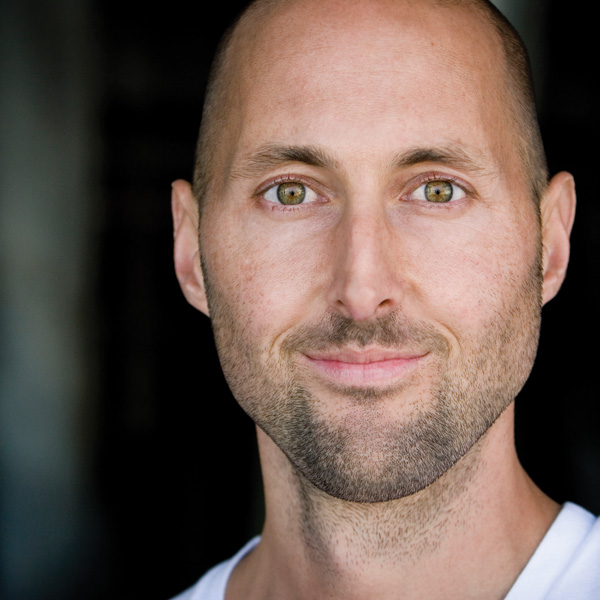This series, curated by Brian Johnson, founder of Philosophers-Notes, features big ideas from leading thinkers on a wide range of personal-development topics. Find his summary video, Habits 101, (free!) below.
Science tells us that willpower is key to achieving everything we want in life. In fact, it’s a better predictor of academic performance than IQ — by a factor of two.
But our willpower is finite. It’s like a muscle that you can work only so much before it fatigues. That’s why the most successful among us have figured out how to use willpower to create habits that work for us so well that we practice them without ever having to exert our will.
Good habits are the key to success, because when you have them in place, you don’t need to negotiate with yourself all day long about whether you’ll work out or eat right.
The more I study, the more I find that all great teachers tell us to master our fundamental needs — our rest, nutrition, and exercise — before we strive for specific goals.
If you don’t have a strong foundation, you won’t be able to build up to reaching your potential.
These are a few of my favorite strategies for making sure your basic needs are met so you have easy access to the willpower you need for building solid habits.
- Eat (healthy food) when you’re hungry. Your willpower is weaker when you’re hungry because you’re focusing on your hunger rather than your goals.
- Breathe deeply. Taking a deep breath is one of the quickest ways to boost your willpower in any given moment. It helps move you out of a fight-or-flight mode into one of pause-and-plan.
- Meditate. Meditation is like strength training for your brain. It helps build the gray matter in areas that regulate emotion and control decision-making — which all add up to stronger willpower.
Now that we’ve identified some top willpower boosters, let’s look at some key methods for constructing sturdy habits.
Unlock Your Keystone Habit
An arch has a keystone, which locks the arch in place and makes it strong. The same principle applies to your life. Your keystone habit is the one behavior that, once mastered, has the greatest impact on your life. Identify and master it — whether it’s daily exercise, adequate sleep, meditation, or a healthy breakfast — and you’ll have a strong foundation for making positive changes.
Know Your “Why”
Philosopher Friedrich Nietzsche believed that anyone who has a strong “why” can endure almost any “how.” Take time to make a list identifying the benefits of installing your keystone habit — that’s your “why.”
Once you know your “why,” you’ll endure the “how” — all the adversity, setbacks, and pain that come with establishing your keystone habit.
Remember the reasons why you’re making the change, and you’ll not only succeed but thrive.
Make a 100 Percent Commitment
Once you identify your keystone habit and understand why you want to make your change, you need to make a 100 percent commitment to doing the work necessary to reach your potential. You can’t commit to 90 percent or even 99.9 percent. You’ve got to get rid of the whiny voice in your head that negotiates with you about all the reasons why you should take a day off. When you decide to do something, make it nonnegotiable.
Practice Daily
You can keep your commitment by creating momentum with daily practices. Skipping days is how habits fall apart. Don’t try to establish a habit by doing it on Monday, Wednesday, and Friday. Doing it daily makes all the difference.
Track your progress on a calendar. When comedian Jerry Seinfeld wanted to master the art of comedy, he set a goal of writing jokes every day. When he accomplished this task, he marked the date on the calendar. It’s exciting to watch your winning streak grow, so monitoring how many days you’ve done something will help you rock it.
OK, it’s inevitable that at some point you’ll miss a day, maybe because of an illness or emergency. We’re all human! If you miss a day, mark your practice on your calendar for the next day, and make it the most important thing on your schedule that day so you don’t miss two days. If you miss two days, you will lose momentum, and that makes it easier to continue missing days.
Make It Easy
One of the best ways to make sure you practice your habit daily is to make it easy to win. Too often we tell ourselves something like “I want to meditate morning and night.” Great. But first note how many minutes you’re meditating now. If you’re doing zero minutes, setting a goal of meditating twice a day is not a realistic way to implement a habit because it may be too much to start with.
It’s easier to do a one-minute habit than a 60-minute habit. Make it easier by creating a series of incremental wins.
You can also make it easier by giving yourself permission to suck at what you’re learning to do. If you’re not in the mood to do something, do it anyway. It’s not important to be good at something all the time, but it’s essential to do it every day, even if you sometimes do it poorly.
Embrace the Process
You’ve already spent years creating a set of habits in your life, so installing a new one will also be a process. Hal Elrod, author of The Miracle Morning, has a great way of looking at this.
Elrod argues that it takes 30 days to establish a new habit. He says the process involves three phases. The first one will feel unbearable. The second will feel uncomfortable, but you’ll begin feeling the benefits. After the third phase, you’ll feel unstoppable. It’s in the last phase that you’ll feel on fire. People couldn’t pay you to stop practicing your new habit because it feels fun. (For more habit-changing tips from Elrod, see “Miracle Morning“.)
When your habits make you happy, you’ll be having fun and you won’t have to think about eating right, exercising, or meditating. And that will give you plenty of willpower for constructing new habits, facing new obstacles, and creating the life you want.
So go on! Get out there and rock those habits.
Download the 7 Habits of Highly Effective People PDF.
Watch a Summary of Habits 101: How to Create Habits That Can Change Your Life
Optimal Living 101
Explore more profound insights and practical wisdom from leading thinkers by diving into our Optimal Living 101 series.





This Post Has 0 Comments